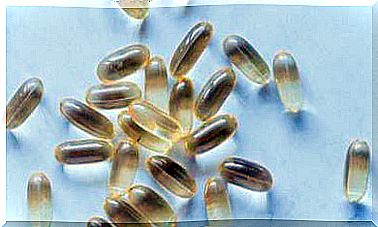Live With More Energy: Take Care Of Your Mitochondria
Sometimes we don’t know why we feel tired or why we feel capable of anything. The key is in the mitochondria. Take care of them and you will be overflowing with energy!

Your ability to move and think, everything you do requires a contribution of energy. This energy is produced in the mitochondria, organelles located inside each cell, which act as true power plants capable of manufacturing it so that the body and mind function properly and without problems.
Mitochondria are a miracle of evolution, of life. Millions of years ago, when oxygen began to increase in the atmosphere, there was a symbiosis between a cell that could not metabolize it and a bacterium that could. This bacterium is the origin of the mitochondria, which reproduce on their own within each cell and have their own DNA (mitochondrial DNA), different from nuclear DNA (its 37 genes, by the way, are essentially inherited from the mother).
Mitochondria are essential for your vitality
In the functioning of the body, the mitochondria play a crucial role, since they are responsible for transforming the nutrients in food into energy in the form of ATP (adenosine triphosphate), a molecule known as the body’s “energy currency”.
For this transformation, the participation of oxygen is essential and it is the mitochondria that have the ability to use it to literally burn nutrients in a controlled way. Thanks to this process we have energy to supply the needs of all organs, carry out all the activities that we propose and feel good.
Healthy mitochondria: a key to health
Therefore, having a good amount of functionally competent mitochondria is essential to enjoy physical and mental health. Studies carried out in recent years reveal that healthy mitochondria contribute to the prevention of cancer and neurodegenerative diseases, and delay aging.
We know that one of the most important differences between a normal cell and a tumor cell is the way it breathes, that is, the way it generates energy. It was discovered by Otto Warburg in 1920, when he showed that damage to the mitochondria was related to the development of cancer. Today we know that mitochondria not only produce energy under normal conditions, but also tell cells when to reproduce and when to die.
A possible source of fatigue
A malfunction of the mitochondria is seen in symptoms such as fatigue. At the cellular level, scientists are investigating the relationship between the functioning of the mitochondria, responsible for producing energy in each cell of our body, and our feeling of fatigue or vitality.
Studies by Dr. Robert Naviaux, from the University of California, San Diego, indicate that disorders such as chronic fatigue syndrome and multiple sclerosis can be triggered by infections or physical or mental trauma that act as stressors on the mitochondria and cause them to enter in “energy saving” mode.
The way to avoid this “mitochondrial lethargy” is not to maintain the excessive and sustained production of adrenaline, cortisol and other stress-related hormones and, on the other hand, to provide them with the nutrients, activity and rest they need.
Mitochondria are important in mental health
The brain activity depends on mitochondrial function. Scientific studies are discovering how anxiety, chronic stress, migraine, autism, depression, dementia or Parkinson’s can be associated with a number of mitochondrial disturbances.
For example, animal studies have shown that a reduction in energy production by the mitochondria corresponds to symptoms of depression and anxiety.
Some neurodegenerative disorders, such as Parkinson’s and Huntington’s diseases or amyotrophic lateral sclerosis – the disease of the scientist Stephen Hawking – are caused, at least sometimes, by mitochondrial mutations that cause excess oxidation and accumulation of proteins that hinder the functioning of neurons.
Schizophrenia, depression, epilepsy, and autism
Diseases such as schizophrenia, major depression or bipolar disorder can be caused by alterations in the mitochondrial DNA. The researcher Helena Torrell, from the Pere Mata Institute of the Rovira i Virgili University (Reus, Tarragona), discovered these mitochondrial genetic alterations in the brain tissue of psychiatric patients.
Some cases of epilepsy and autism can be explained by alterations in bioenergetic and oxidative metabolism caused by changes in the expression of genes in mitochondrial DNA, as explained by Dr. Juan José García Peñas in an article published in the Revista de Neurología.
The information available is drawing a panorama in which the mitochondria determine the correct functioning of the main physiological systems, including the brain.
Researchers Peter Kramer and Paola Bressan, from the University of Padova (Italy), assure that, although we do not know all the mechanisms related to mental illness, we know what it takes to maintain healthy mitochondria: “physical exercise, enough sleep, a diet nourishing and relaxing activities like yoga or meditation. “
Avoid the enemies of the mitochondria
We are interested in maintaining healthy mitochondria. For this we must avoid certain factors that can induce mitochondrial failure:
- Virus
- Bacteria
- Alcohol
- Tobacco
- Unnecessary drugs
- Radiation and other environmental pollutants
- Chronic stress
All these agents produce alterations in the mitochondria that promote tumor processes, cardiovascular disease, metabolic syndrome, dysfunctions of the immune system, alterations in mental health, fatigue, autism or depression.
In addition to avoiding these factors, we can protect the mitochondria from free radicals that are generated by their own functioning. We can do it with a proper lifestyle and a nutritious and antioxidant diet that counteracts the negative effects of free radicals. In this way we will maintain high levels of energy, well-being and health.









